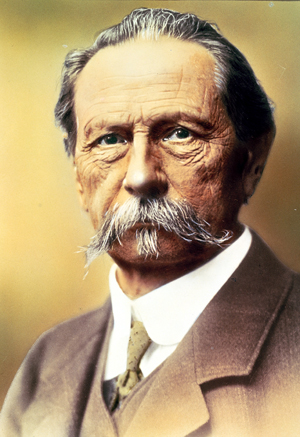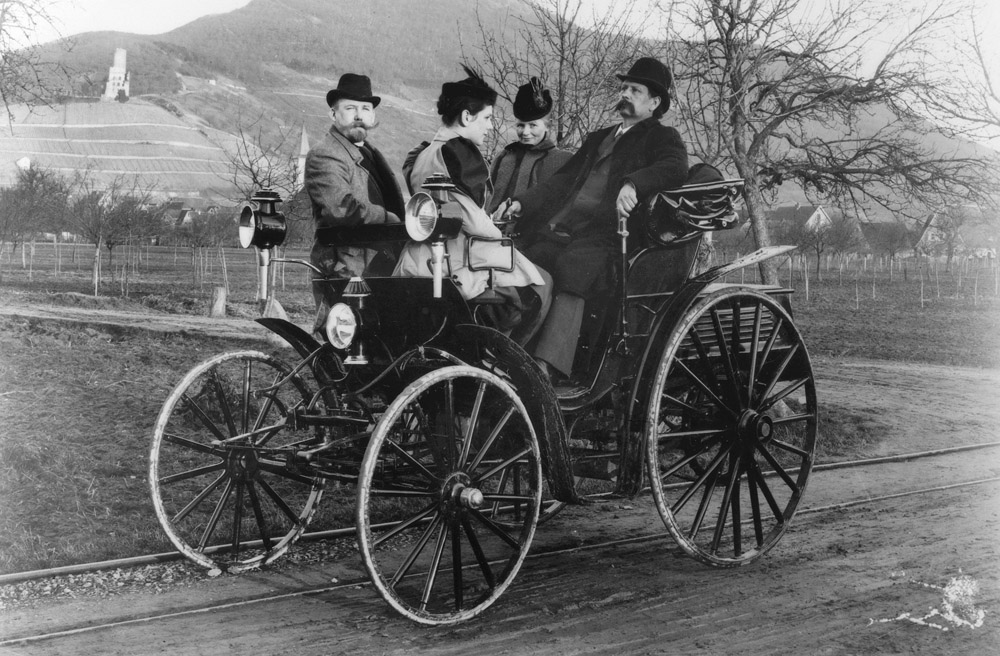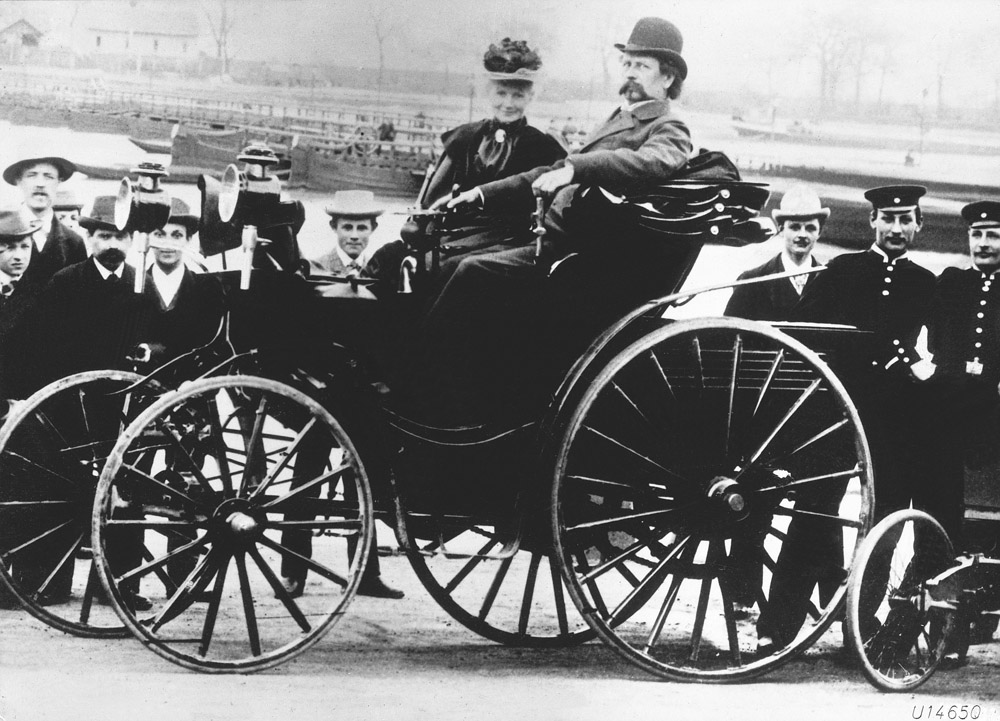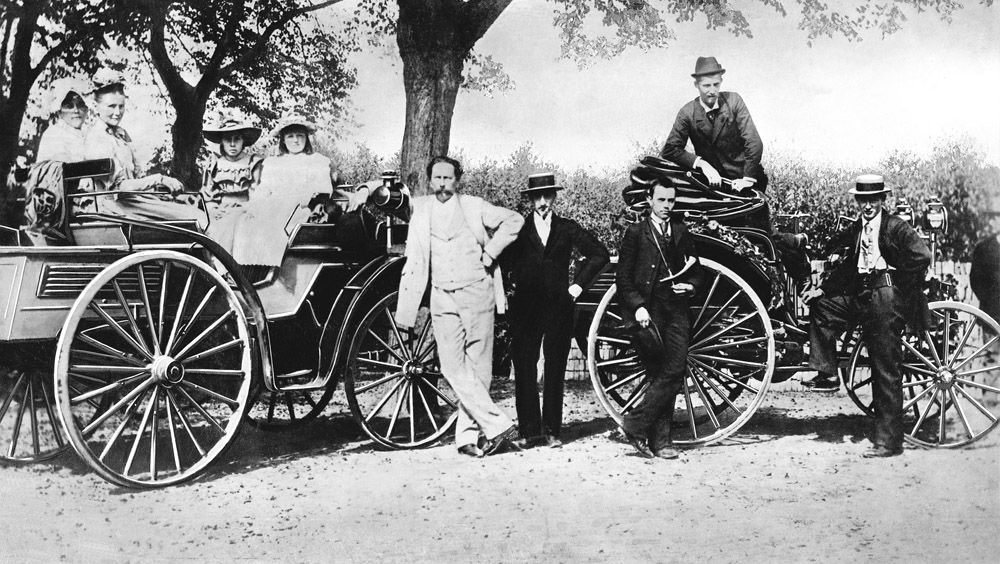 Carl Benz (November 25, 1844 – April 4, 1929), inventor of the gasoline-powered automobile, pioneering founder of Mercedes-Benz.
Carl Benz (November 25, 1844 – April 4, 1929), inventor of the gasoline-powered automobile, pioneering founder of Mercedes-Benz.
Carl Benz is hailed as the inventor of the automobile and a founding father of the present Daimler AG, the world’s oldest automotive manufacturers. Many of Benz’s inventions paved the way for development of the automobile in its early years. Axle-pivot steering, electronic trembler coil ignition and the float-feed carburettor were all pioneering inventions without which the car would never have become a going concern. As an inventor and entrepreneur, Benz possessed enough entrepreneurial vision to produce his automobile in series. By 1900, Benz & Cie. in Mannheim was the largest car manufacturer in the world.
Carl Benz was born in Karlsruhe on 25 November 1844, the son of a locomotive driver. He attended the local grammar school and went on to study under Ferdinand Redtenbacher at the Polytechnic University of Karlsruhe. Upon graduation he embarked on a two-year internship at Maschinenbau-Gesellschaft Karlsruhe, where Benz immersed himself in work in all departments.
His first full-time employment was as a draughtsman and designer with a scales manufacturer in Mannheim. In 1868 he moved to the engineering firm of Gebrüder Benckiser – Eisenwerke und Maschinenfabrik, who were involved mainly in building bridges and steam engines.
As was the case with many of his contemporaries, his interest in vehicles was first awakened by the bicycle. The period he spent at Benckiser was followed by a brief interlude in Vienna, once again with a firm of iron construction engineers. Then in 1871 the technically-minded Benz set up his first company in Mannheim with August Ritter, his mechanically-minded accomplice. The company did not prove a great success, however. In 1872 he married Bertha Ringer, who would subsequently play a key role in her husband’s life work. The marriage produced five children.
At this time, Carl Benz was working intensively on his internal combustion engine with the aim of setting up a new business. After a two-year development phase, Benz’s first engine spluttered into life for the first time on New Year’s Eve 1879. He was awarded several patents for improvements to the engine. With support from new investors, he finally set up the company Benz & Co., Rheinische Gasmotorenfabrik in Mannheim in 1883. Financially secure at last, he now set about designing a complete vehicle. He was awarded Patent No. 37 435 in 1886, whereupon he unveiled his Patent Motor Car to the public.
In 1885/86 he developed three different versions in total, although the first two of these only ever gave rise to one example each. It was in a copy of the third version, however, in which Bertha Benz – unbeknown to her husband – set off with sons Richard and Eugen in the summer of 1888 on her legendary journey from Mannheim to Pforzheim, the first long-distance journey in automotive history.
In 1894 Benz produced the Victoria model, the first four-wheeled car with state-of-the-art double-pivot steering, as well as the Vis-à-Vis model. Both vehicles underwent constant improvement and engine modifications and were built until 1900. Benz & Cie. also produced the Velo model from 1894 to 1900, and with around 1,200 units being built during this period it can fairly be described as the world’s first affordable production car.
Carl Benz retired from an active role in the company in 1903, although he took up a seat on the supervisory board. That year, sales of Benz motor cars rose to 3,480. In 1906 he set up the company Carl Benz Söhne in Ladenburg, which also continued to manufacture motor vehicles until 1923. The company owners were Carl Benz and his son Eugen. 350 vehicles bearing the “Carl Benz Söhne” badge were built in total.
The Benz family had by this time moved to live in Ladenburg. Unlike Gottlieb Daimler, Carl Benz lived long enough to see the economic boom of motorisation and the long-awaited breakthrough of his idea. He died at his home in Ladenburg on 4 April 1929. He was posthumously inducted into the Automotive Hall of Fame, Dearborn in 1984, and into the European Automotive Hall of Fame, Geneva, in 2001.




You must be logged in to post a comment.